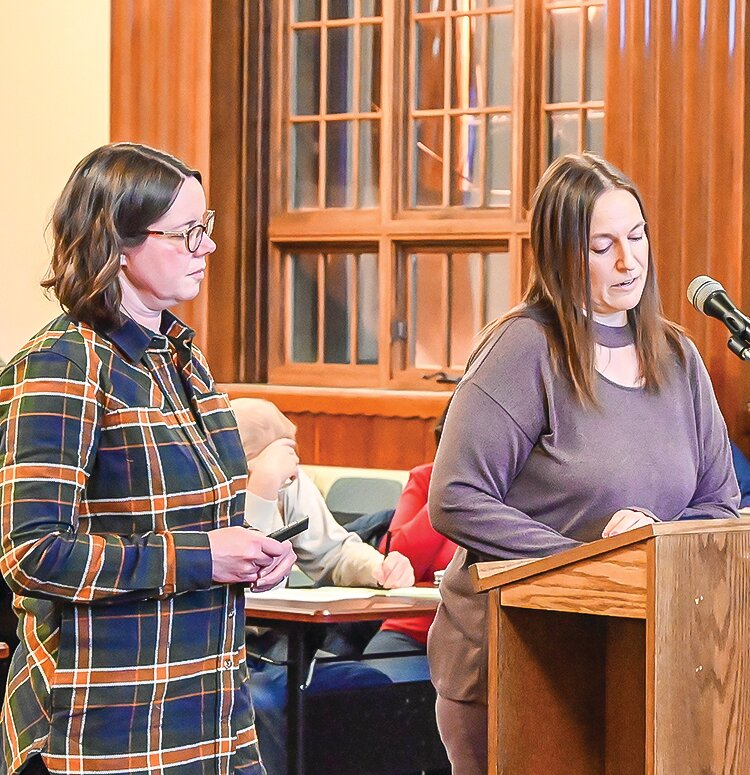Support the Timberjay by making a donation.
Group eyeing transitional housing in Ely
Staff seeking community input on plan to help those recovering from substance abuse
ELY— The local nonprofit Well Being Development is hoping to turn class action lawsuit settlement funds into transitional housing for local residents recovering from the effects of substance …
This item is available in full to subscribers.
Attention subscribers
To continue reading, you will need to either log in to your subscriber account, below, or purchase a new subscription.
Please log in to continue |
Group eyeing transitional housing in Ely
Staff seeking community input on plan to help those recovering from substance abuse
ELY— The local nonprofit Well Being Development is hoping to turn class action lawsuit settlement funds into transitional housing for local residents recovering from the effects of substance abuse. The group, which has served the Ely area since 2010, received $134,000 from an opioid settlement received by St. Louis County.
The group currently operates the Northern Lights Clubhouse and the Pathways to Wellness care facilitator program, but this would be the group’s first venture into transitional housing in Ely. Since receiving the funds in March, the group has been researching a number of options for best directing the funds to serve the unaddressed mental health needs in the community. WBD employees Deanna Swenson, Beth Chapman, and Emily Ferguson set a goal of identifying evidence-based and cost-effective interventions that could make a real difference in the lives of those served by the organization.
The three identified several needs in Ely for clients in recovery for substance use disorder (SUD), but ultimately settled on addressing the need for transitional housing for individuals working on reintegrating into the local community following substance abuse treatment. The group is currently looking at a four-bedroom residence on Washington St., not too far from St. Anthony’s Church. The zoning appears to be amensable to accommodating a transitional housing facility serving from two to four people who have successfully completed a treatment program. A mental health services facilitator will be part of the co-located services provided for the residents. People taking advantage of the home will be expected to pay rent to help support the facility.
“These won’t be outsiders to the community,” explained WBD executive Director Kap Wilkes. “These will be people who are already local residents or have strong connection to Ely.
Outreach
Wilkes stresses that her organization has taken a go-slow approach to their planning effort and have made an extensive effort to reach out to the community about their ideas. One of its first significant outreach efforts was at the Harvest Moon Festival and attracted attendees to take a survey on the proposal in exchange for ice cream. The results were enlightening.
“There is not a person in Ely who has not been affected by [substance abuse],” wrote one survey respondent with lived-experience in the disease. Over 300 people filled out the survey, with over 180 identifying as local residents.
The results of the survey encouraged WBD to continue developing their proposal, with an eye towards bringing a residence online sometime in 2024 or later.
“We’re not rushing into this,” Wilkes told the Timberjay. WBD presented its current plans to the Ely City Council earlier this month and held another public forum this past Tuesday at the Ely Senior Center as part of their effort to inform the public and generate feedback.
Justification
According to the federal Substance Abuse and Mental Health Services Administration, 16.5 percent of the nation’s population is affected by a substance use disorder. That translates to one in every six Americans, so the problem affects almost everyone. Many of those with SUD acquired the disease through opioid prescriptions. WBD will help address a widespread problem that infects the community by focusing on a service to help SUD sufferers.
The WBD researchers also found that post-treatment residential programs significantly improve outcomes for those in recovery from substance use disorders, including reducing their chances of future incarceration and relapse while increasing their odds of finding employment and reintegrating into the community. The economic benefit to the community is substantial, putting an estimated $29,000 back into the local economy for every successful client who exits transitional recovery housing and re-enters the community.






